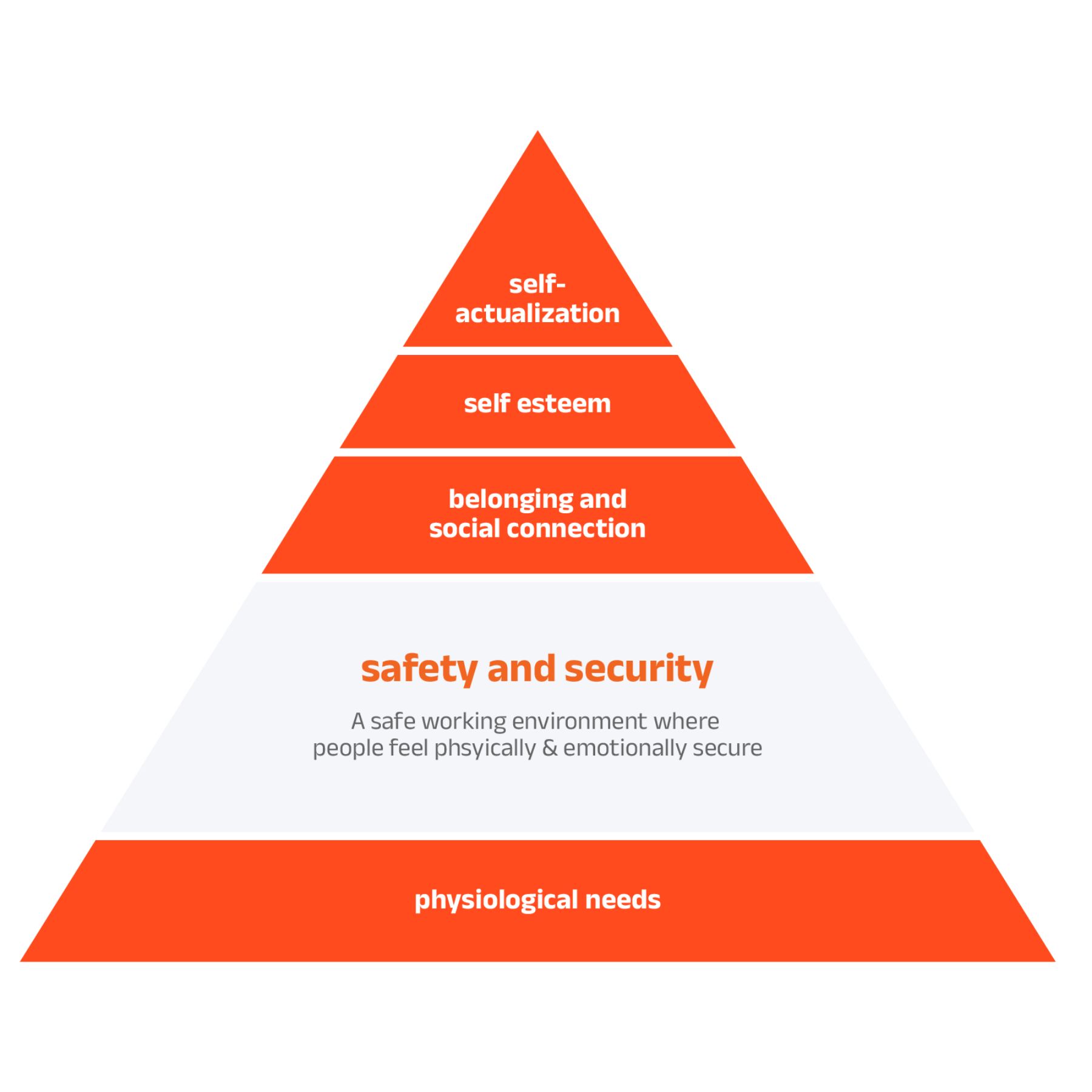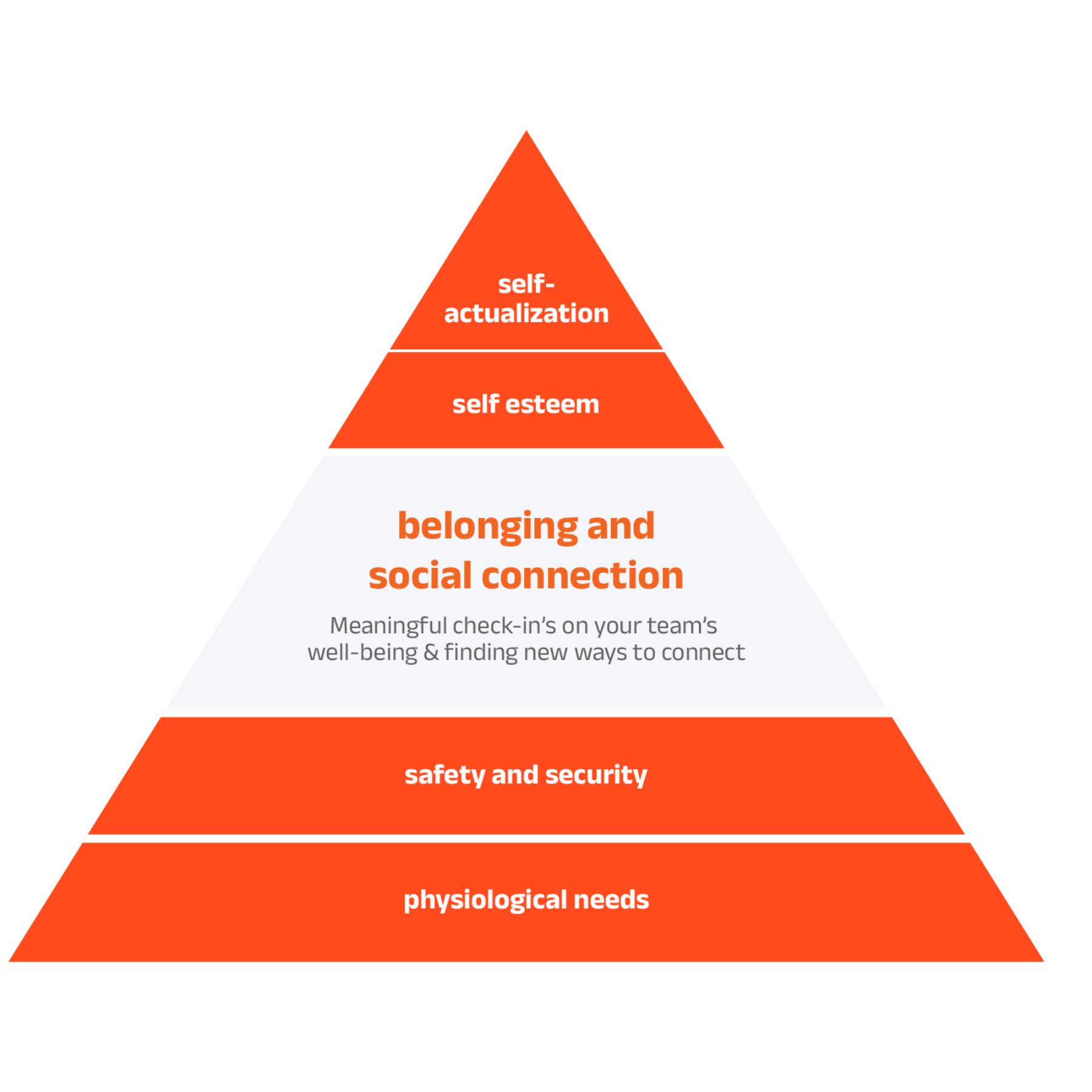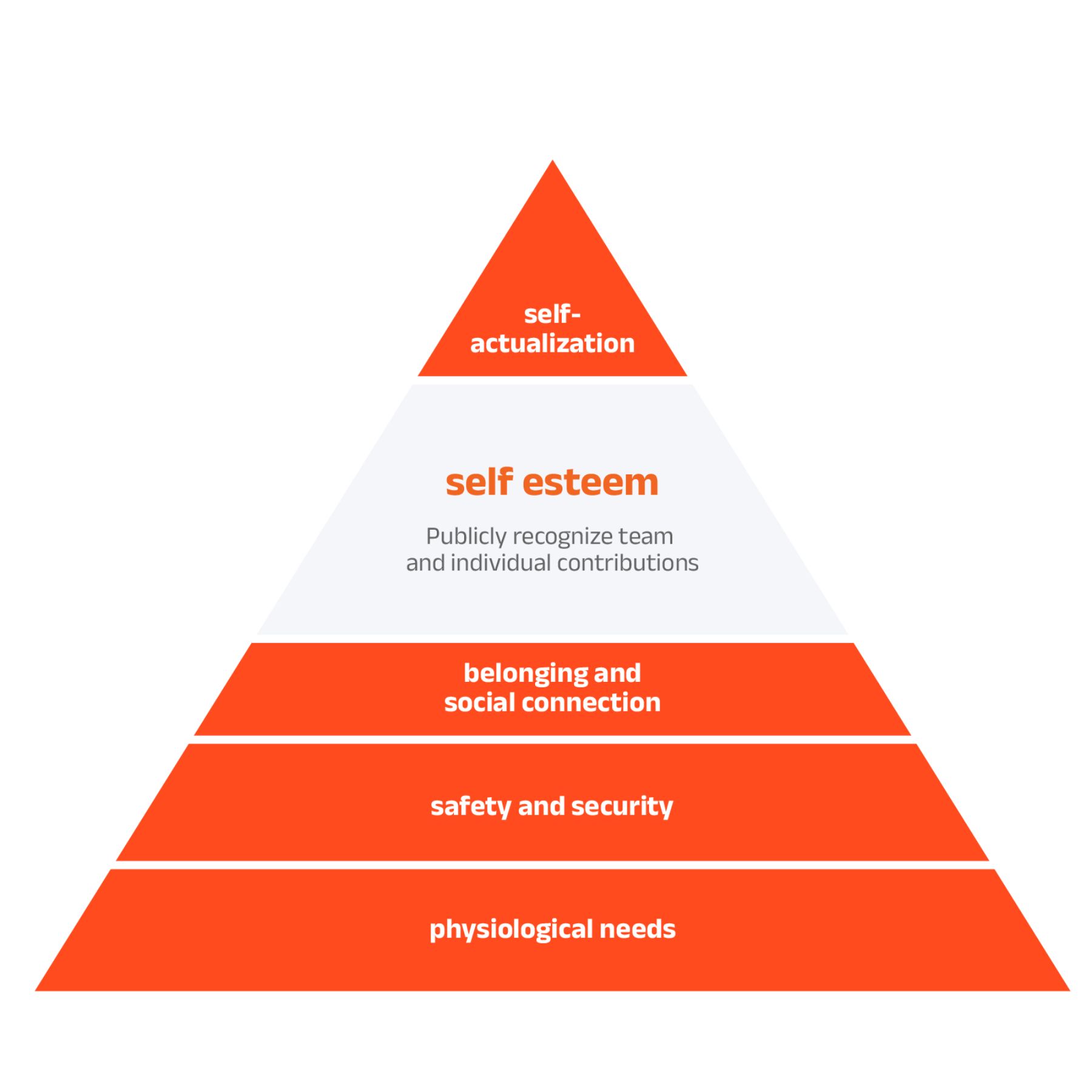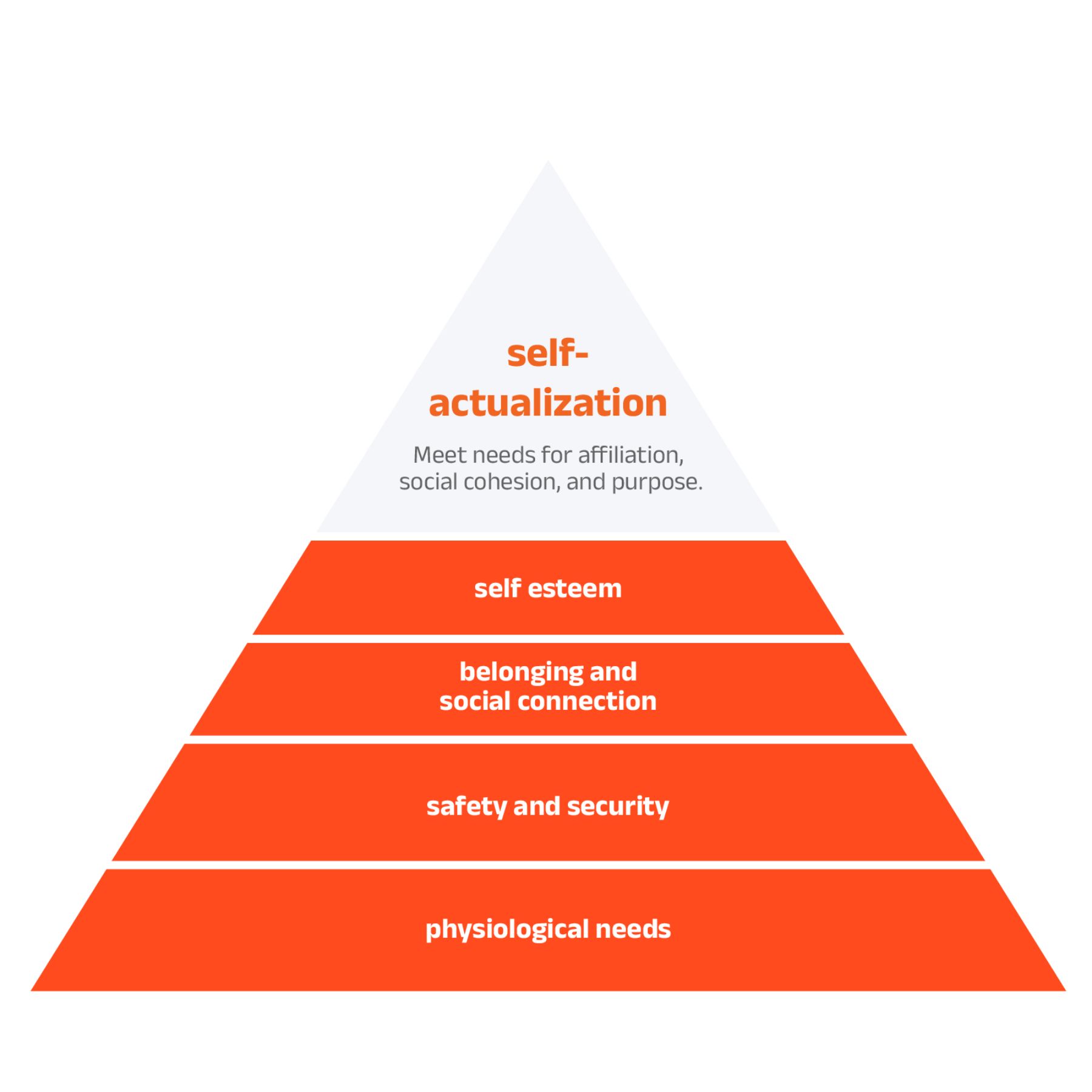
The workplace as we know it has undergone a radical change, but the basics of human motivation remain the same. To figure out what your employees need in this brave new world of hybrid offices, go back to Maslow’s Hierarchy of Needs.
After more than a year of remote work and social distancing, employers are figuring out what comes next for their companies and their employees. Many large firms are planning to keep a portion of their employees at home, at least some of the time, hoping to capture the benefits of reduced real estate and more flexible options for their workers.
But a world of hybrid work poses some real challenges for company culture and employee well-being. A recent survey from Microsoft found that while managers are thriving, the majority of employees feel burned out after a year of remote work. Among younger workers and new hires, more than 6 in 10 reported that they were struggling.
Returning to the basics of human psychology can help business leaders support their people — even from afar. In 2019, my colleague Dr. Phil Levy and I wrote about the way Abraham Maslow’s classic hierarchy of human needs offers a great guide to supporting employees. Here’s a post-COVID update, a translation of Maslow’s hierarchy to help all of us stay connected in a remote-working world.
Physiological
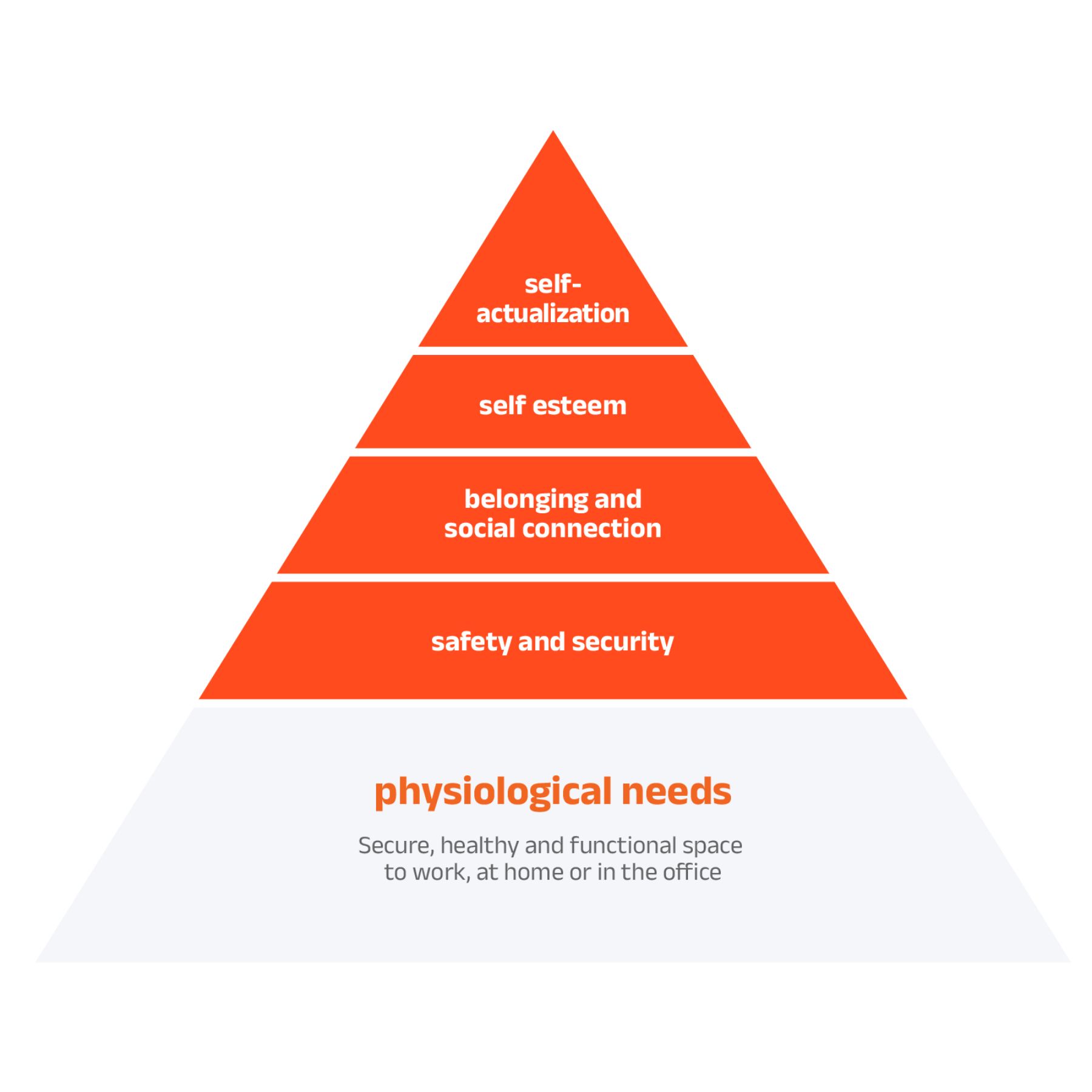
Attending to the basic health and comfort of employees is more of a challenge when they’re outside the office. We’ve all seen the memes of a harried parent balancing a laptop on a stack of cookbooks, trying to make a home office out of a kitchen counter. People do their best work when they have a secure space and the right tools to do the job. Companies should find ways to equip their workers with the basic infrastructure of the office, even when they’re working from home.
Firms like Twitter, Shopify, and Basecamp all provided home-office stipends at the start of the pandemic, something more employers should consider as remote working becomes permanent.
Safety and Security
There’s been an enormous focus over the past year on physical safety in the workplace: better cleaning and airflow, social distancing rules, regular health checks. Even as the pandemic recedes, people returning to shared workspaces will still have a heightened sense of the risks inherent in gathering, and smart employers will take steps to reassure them. But a sense of safety goes beyond the physical environment and extends to the way employers treat their people. Are employees free to speak up? Does the format of remote meetings encourage everyone to engage?
Paying attention to the structure of remote meetings — sharing the agenda ahead of time, pausing for reflection and responses, and making sure people are encouraged to follow up afterward — can go a long way in supporting quieter, more introverted employees. “All this requires the chair to play a more active facilitation role than in a face-to-face meeting,” advises UGM Consulting. “Review your shared ground rules about listening, contributing, and turn exchange.”
Belonging and Social Connection
Successful firms put a lot of thought into building a sense of identity and connection for their employees. That’s even more important when people aren’t physically together. Without the built-in connections of a shared space, managers need to make more time for check-ins and listening. “There’s ample research showing that virtual teams can be completely equal to co-located ones in terms of trust and collaboration,” writes Tsedal Neeley, a researcher at Harvard Business School. “It just requires discipline.”
The online ticketing company Eventbrite retrained managers to make room for more open-ended discussion about employee wellbeing during regular meetings, pushing supervisors to ask, “How are you really, really doing?” as a way to start deeper conversations.
Self Esteem
People crave recognition and appreciation. In a remote world, managers should go out of their way to make sure employees are celebrated for their contributions. That doesn’t just mean one-on-one praise, but making sure that the whole organization takes note of exceptional work.
Set aside time in virtual all-staff meetings to highlight accomplishments from different parts of the organization, and make sure employee recognition programs are prominent and properly celebrated through company-wide events, emails, or remarks from senior leaders. Research from the Society of Human Resource Management found that frequent, small acts of recognition make a huge difference to employee satisfaction. And a Glassdoor survey found “intangible non-cash benefits, like flexible work options or the ability to choose assignments, led to much stronger job satisfaction than straightforward cash rewards.” That flexibility should be even easier now.
Self-Actualization
People perform best when they feel a sense of meaning and can make the fullest use of their talents. A recent McKinsey report on “future-ready” companies called for flattening organizational structures so that all employees are empowered to contribute beyond narrowly defined roles. McKinsey called on company leaders to “take a stance on purpose,” so people can see how their work makes a larger difference in the world.
“People long to belong, and they want to be part of something bigger than themselves,” the report finds. “Companies that fixate only on profits will lose ground to organizations that create a strong identity that meets employees’ needs for affiliation, social cohesion, purpose, and meaning.”
As the economy accelerates, and more people embrace the chance to live and work almost anywhere, companies will be competing even more fiercely for talent. “Thanks to the rise of remote work, more people will have more flexibility over when, where, and how they earn their living,” predicts The Economist. “The shift to a ‘hybrid’ model of work, with some work taking place in an office and some at home, is already forcing managers to become better communicators, improving employees’ job satisfaction.” Sharing a clear sense of mission can go a long way in attracting and keeping good people.
Major upheavals often lead to major changes in the way people think about their lives and their priorities. The pandemic will be no different. Remembering the fundamentals of human psychology can help smart leaders stay focused in uncertain times, harnessing new tools to meet age-old needs.
